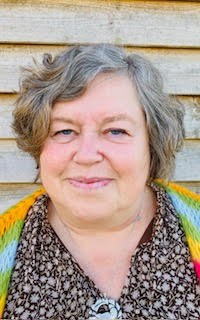Municipal Denmark to unite freedom and control
“Setting free” is the topic of the day in Danish municipal and national politics. It is seen as a possible key to delivering welfare services to citizens despite fewer resources and labour shortages. Helsingør municipality has had good experiences, but the upcoming local elections could throw a spanner in the works.
For nearly four years, leaders and staff in Helsingør municipality’s early childhood education services have been exempt from certain municipal and national requirements. This has been part of a national pilot project aimed at giving municipal employees greater freedom to set their own priorities.
It has enhanced professional standards and job satisfaction among nursery and preschool teachers, according to Vibeke Stær Juul, the union representative for educators in Helsingør municipality, who are organised in the BUPL trade union.
 “Our union representatives in the institutions tell us that pedagogical and professional freedom has increased, allowing children to receive what educators, based on their expertise, deem necessary. Educators feel they have regained their profession,” says Vibeke Stær Juul.
“Our union representatives in the institutions tell us that pedagogical and professional freedom has increased, allowing children to receive what educators, based on their expertise, deem necessary. Educators feel they have regained their profession,” says Vibeke Stær Juul.
A phone call from the PM
She has been involved in the setting free-initiative since its inception, which began with a phone call from the Danish Prime Minister Mette Frederiksen (The Social Democrats) to the Helsingør Mayor, Benedikte Kiær (The Conservative People’s Party).
The Prime Minister asked Helsingør to become one of seven municipalities in a national pilot project aimed at freeing employees and local leaders in key municipal welfare services from state and municipal regulations.
That is what happened. Since 2021 and until 31 July 2025, the early childhood education sector in Helsingør municipality and one other municipality has been exempt from implementing new policies and regulations passed by the state and parliament, which municipalities are otherwise required to follow.
Likewise, two other municipalities have been freed from political regulations in the primary school sector. Another three Danish municipalities have been exempt in the third major municipal welfare sector: elderly care.
Innovation
The exemption was passed by a political majority in parliament back in 2020, driven by the need to rethink municipal welfare services to secure the future of welfare.
The pilot aimed to assess whether granting municipal workers exemption from new regulations and greater autonomy to develop local solutions close to citizens, with active involvement from employees, would result in more innovation.
An evaluation of the seven participating municipalities' experiences shows that politicians, leaders and employees have used the initiative to rethink approaches. This has led to the launch of various trial activities.
One early childhood education centre in Helsingør municipality has focused on reducing food waste and improving waste recycling. Another wants to enhance staff competencies to strengthen pedagogical quality.
A third has used the increased decision-making freedom to give educational staff more time to prepare, explains the union representative for educators in Helsingør municipality.
This was an important political safeguard that helped enable innovation and experimental activities, believes Vibeke Stær Juul. She urges the municipality to extend this temporary budgetary flexibility beyond the scheduled end in the summer of 2025.
Rewarding and demanding
The initiative has not led to obvious significant changes in the service quality for citizens. However, the evaluation shows that it has provided employees with a greater sense of professional freedom and job satisfaction.
“Employees in the three welfare sectors have experienced a slight increase in their sense of professional freedom during the trial period. They often report that this contributes to increased job satisfaction and motivation.
Local leaders also experience greater well-being when they are allowed to manage local services and initiatives. However, in early childhood education and elderly care, it has become evident that leadership responsibilities can be extensive and challenging when municipalities have more independence – and in the short term, not necessarily beneficial to leaders’ well-being.
 , the municipality’s head of early childhood education, acknowledges that leading empowered employees is both rewarding and demanding.
, the municipality’s head of early childhood education, acknowledges that leading empowered employees is both rewarding and demanding.
“For the leaders in early childhood education and for me as their manager, it has been exciting to learn how to lead with fewer rigid control mechanisms while maintaining quality.
“It’s about setting a direction without saying, ‘You must do it this way.’ Some leaders find this easier than others,” says Helene Horsbrugh.
She believes the setting free-initiative has also freed employees’ mindsets. They have been met with trust and high expectations, giving them greater confidence to challenge the usual way of doing things in pedagogical practice and explore whether something can be done in a new and better way.
Horsbrugh expects this to have a lasting impact.
“It has become part of the culture, and I believe it will continue, even though we don’t yet know the political landscape after the local election on 25 November 2025,” she says.
The need for a balanced approach
Klaus Majgaard, who has worked for over 20 years in public administration and the governance of welfare services – both as a researcher and a practitioner at state and municipal levels – says that local freedom and central regulation must go hand in hand as a fundamental principle for municipalities.
“The municipalities are facing immense pressures – financial, recruitment issues, socially challenged housing areas, preventative health measures and the rehabilitation of older citizens after they’ve been in hospital.
“That’s why we need to develop new welfare solutions, and employees must be allowed the freedom to help do this. But governance is also needed to ensure consistency and quality.”
Over the past 50 years, the government and parliament have alternately given municipalities and public sector employees more freedom and imposed tighter regulations.
 Now, there is a need for a balance of both, and municipalities must be very thorough in setting and communicating the boundaries of freedom for municipal employees and leaders. Otherwise, they will be subjected to immense pressure, argues Klaus Majgaard.
Now, there is a need for a balance of both, and municipalities must be very thorough in setting and communicating the boundaries of freedom for municipal employees and leaders. Otherwise, they will be subjected to immense pressure, argues Klaus Majgaard.
"It feels almost schizophrenic to be empowered to create local solutions when it means taking on responsibility for dilemmas that must be navigated through a forest of explicit and implicit governance demands.
“Many municipal leaders spend considerable energy trying to decode when political and administrative governance initiatives invite dialogue and joint reflection, and when they are a subtle hint to fall in line."
Possible intervention
The politicians could in reality intervene at any time if they are not satisfied that the municipal leaders and employees are using their decentralised powers in the right way, points out Klaus Majgaard:
“Prime Minister Mette Frederiksen has, alongside the agenda of giving more freedom to municipalities, stated that she is prepared to directly govern municipalities when it comes to issues such as gender-segregated swimming lessons in schools and screen time in daycares.
“Ahead of local elections, candidates may also be very tempted to make promises to voters that limit local freedom.”
It is crucial for municipal employees that control is not exercised under the guise of setting municipalities free. It must be made very clear what is within the freedom of local leaders and employees, and when structural power and governance will be applied, says Klaus Majgaard.
"With more freedom to municipalities, politicians and administrations can push complexity and dilemmas down the organisation, so that they end up with local leaders and employees. These individuals must have the opportunity to push the dilemmas back again," he concludes.
No miracle cure
Minister for Children and Education Mattias Tesfaye (The Social Democrats) believes that other municipalities can draw many lessons from the setting free-experiments.
This includes governance models where the focus has been on trust-based leadership and the development of a new culture of governance and management.
"However, the evaluation of early childhood education and primary schools also shows that more freedom in decision-making is not a miracle cure that solves all problems overnight," said Mattias Tesfaye in a press release when the evaluation of the setting free-experiments was presented in February 2025.
From 1 August 2025, Helsingør municipality and the other municipalities involved in the experiment will again be required to follow the same national rules that apply to other municipalities in the country.
- Working method
-
This is how the illustration looked when all preschools presented how they work with the setting free agenda. Photo: Helsingør municipality
- Danish municipalities
-
- There are 98 municipalities in Denmark.
- Copenhagen municipality is the largest by population with 660,000 residents.
- Læsø municipality is Denmark’s smallest. Læsø is an island between Frederikshavn and Gothenburg with only 1,793 residents.
 Follow us on Facebook
Follow us on Facebook
